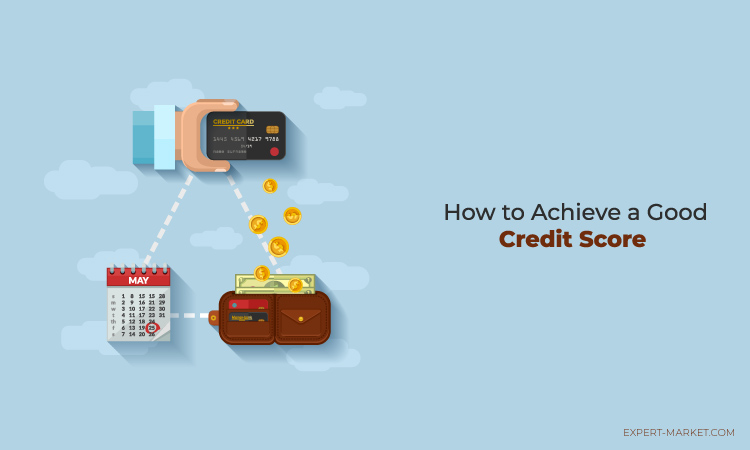Having good credit is important because it can open many doors for you. Your credit score is going to affect your ability to get a loan or mortgage or when leasing an apartment. It will also affect when you are applying for an auto loan to get a good vehicle. A credit score is going to determine whether credit unions and banks will give you a personal loan in case you need it.
It also plays an important role when securing a business loan and starting a business. It can also have an impact on your chances of getting employed because there are some employers – especially those looking to fill positions that involve financial responsibilities – who will do a credit history check as part of the screening process.
These are some of the reasons why it is a good idea to work on your credit score and maintain it that way. A credit score is very important, it is not just a number. When you manage to improve your credit score, you will be able to enjoy the above benefits. Apart from increasing your chances of getting approved for loans and mortgages, a good credit score helps you get better interest rates on your credit cards and loans.
You will be able to get approval for credit cards offering better benefits and perks, and you are going to live a more comfortable life. Below are some tips that will go a long way in helping you improve your credit score and get all the benefits it brings.

1. Knowing how it works
You need to know how the credit score system works. Two methods can be used in rating someone’s credit, but this article is going to focus on just one of them: the FICO model. The theoretical ‘’perfect’’ score on the FICO model is 850.
It is almost impossible to find someone who has the perfect credit score, but 740 is seen as “very good” while a score of 800 is deemed “exceptional”. 670 is considered as the average score for the “good” range. This is also the number you should be using as your target if you have poor credit and looking to improve things. A “poor” credit score is one that is below 580.
Understanding the numerical scale is one of the aspects of credit scores. The other is knowing how credit bureaus come with the numbers. A credit score will typically be about five key categories of data.
The calculation is going to look at your payment history, the mix of credit you currently have (credit cards, loans), how much debt you have, recent credit activity, and your “credit age” (this is the duration of your credit history). Different factors can have an impact on your credit score, from missing your payments to too many people requesting your credit score in a short time. When you know the categories, you will be able to start learning how you can change your behavior so that you can start building your credit score instead of decreasing it.
2. Paying your bills
Paying your bills on time is one of the best things you can do when it comes to improving your credit score. Pay all your bills, not just credit card bills. Your monthly rent payment; your mortgage; your student loans; your car loans. The smaller things such as parking tickets and overdue fees at the local library can have an impact.
Not that the credit reporting agencies are going to get reports about your debts, but the debts can be easily sent to collection agencies, and this will affect your credit score. When you pay on time, you are going to build your credit score while avoiding costly interest or late fees that add to your debts. With a good credit score you will get the best rates and higher approval from a licensed moneylender in Singapore or anywhere for that matter.
3. Not relying on minimum payments
You might see minimum payments as a good thing especially if you have high credit card bills you cannot afford to pay. The minimum payment is good as your last resort because it gives you the chance to make low minimum payments while avoiding late fees.
The downside to this method is when done repeatedly, it negatively affects your credit score. Credit utilization has a role when it comes to calculating credit scores. When you utilize all or most of your credit card limit (maxing out your credit card with a $7,000 limit).If you have maxed out or close to your limit, making minimum payments means you won’t reduce credit utilization, and this is going to negatively affect your credit score.
4. Avoiding high balances on credit cards
Credit cards have limits, and there are recommendations that will help in determining how much credit you can utilize at any time. Let’s say you have a credit of $15,000 across your cards, you should try your best not to go over 30 percent. If you find yourself in a position where you cannot stick to below 30 percent, try keeping your utilization rate below 50 percent. When you have low balances on your cards, you have an easier time paying them off while keeping utilization rates low. This will help in improving your credit.
5. Do not close old cards
If you have cards that you no longer use, remember that they are lines of credit reporting to credit bureaus. When you keep the cards, you will have a lower credit utilization rate, which is good for your credit score. When you hold on to the kids, you will be able to avoid situations where they are completely removed from the records – which is something that happens ten years after closing the card.
Closing a credit card can shorten your credit age. Let’s say you got your first card when you were 16 and parents being joint cardholders. When you live on your own, you might not need the card. Keeping it open is a good idea because your credit age is going to be reflected, and this dates back to when you got your first credit card.



























